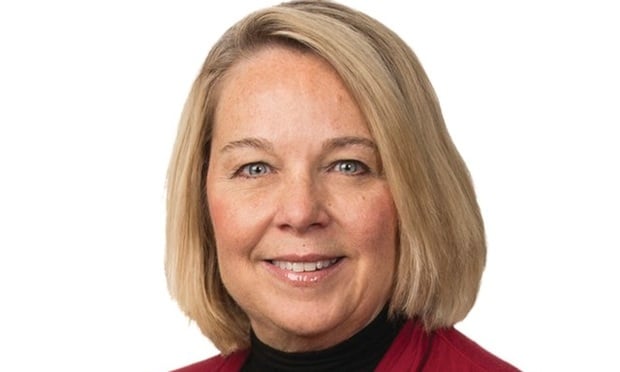Womble Bond Dickinson Bolts on DC Telecom Boutique
The newly formed Womble Bond Dickinson announced Monday that it would acquire seven-lawyer Bennet & Bennet in Washington, D.C.
December 04, 2017 at 07:18 PM
13 minute read

A month after completing a trans-Atlantic merger, Womble Bond Dickinson announced another tie-up Monday, absorbing seven-lawyer communications and technology boutique Bennet & Bennet, which has offices in Washington, D.C., and Bethesda, Maryland.
Michael Bennet and Caressa “Carri” Bennet, the husband-and-wife duo that founded the small firm in 1995, will become partners along with Marjorie Spivak in the newly formed Womble Bond Dickinson's communications, technology and media team.
Bennet & Bennet counsel Robert Silverman and Daryl Zakov are joining Womble Bond Dickinson as senior counsel, while senior counsel Howard Shapiro comes aboard as of counsel and Erin Fitzgerald joins as an associate. The combination between both firms will go live under the Womble Bond Dickinson name on Jan. 1, 2018.
Bennet & Bennet primarily works with clients in the rural telecommunications and broadband space, representing wireless and broadband communications providers in a wide array of matters, including federal regulatory compliance. In 2011, the firm scored a role representing the Rural Telecommunications Group in its bid for a regulatory review of AT&T Inc.'s ultimately unsuccessful $39 billion acquisition of T-Mobile USA Inc.
Carri Bennet said that the tie-up with Womble Bond Dickinson came after some introspection on the trajectory of her firm and its clients' needs.
“We've been around in this space doing this for quite some time [and] we're getting old,” she joked. “We started looking around to see what we should do next, where our client base was going and what kind of support they needed.”
And while Bennet & Bennet had been approached by other firms for potential mergers in the past, Womble Bond Dickinson proved to be the right fit for her outfit, said Bennet, noting the firm's Nov. 1 creation following a cross-border combination between Winston-Salem, North Carolina-based Womble Carlyle Sandridge & Rice and the U.K.'s Bond Dickinson.

As more and more transactional activity shifts to regions outside the United States, Bennet said working at Womble Bond Dickinson will allow her team to serve its client base on a broader trans-continental platform.
“They're not quite there yet,” said Bennet, when asked about the global aspirations of her firm's client base of predominantly smaller telecommunications companies. “But we were positioning to offer those service to our clients who are primarily based in rural America.”
Many of Bennet & Bennet's clients entered the rural telecommunications and broadband market because no one else wanted to service that part of the country, Bennet said. So for years, the companies had to adapt to new technologies and permutations, and as a result, are poised to pivot and quickly adapt to rapid changes in technology, unlike their larger counterparts.
“Our guys are not the first adopters of the technology, but they know how to integrate it very quickly into the networks they already have,” Bennet said.
Larger telecommunications companies can learn from smaller operators in the space on how best to position themselves in the marketplace, said Bennet, adding that Bennet & Bennet's capability and knowledge of that technology and smaller network nuances is something that her team can bring to a growing global legal giant like Womble Bond Dickinson.
“I think that's something you don't see a lot of lawyers, other than patent lawyers, really understand[ing],” Bennet said.
Womble Bond Dickinson's acquisition of Bennet & Bennet was one of a flurry of combinations between large and small law firms to start December.
Squire Patton Boggs bolted on a small cybersecurity firm in Dallas, while Atlanta-based Smith, Gambrell & Russell expanded to Los Angeles by acquiring boutique Rodi Pollock Pettker Christian & Pramov. In Houston, leading Louisiana firm Kean Miller absorbed five-lawyer local shop Ogden Broocks & Hall.

A month after completing a trans-Atlantic merger, Womble Bond Dickinson announced another tie-up Monday, absorbing seven-lawyer communications and technology boutique Bennet & Bennet, which has offices in Washington, D.C., and Bethesda, Maryland.
Michael Bennet and Caressa “Carri” Bennet, the husband-and-wife duo that founded the small firm in 1995, will become partners along with Marjorie Spivak in the newly formed Womble Bond Dickinson's communications, technology and media team.
Bennet & Bennet counsel Robert Silverman and Daryl Zakov are joining Womble Bond Dickinson as senior counsel, while senior counsel Howard Shapiro comes aboard as of counsel and Erin Fitzgerald joins as an associate. The combination between both firms will go live under the Womble Bond Dickinson name on Jan. 1, 2018.
Bennet & Bennet primarily works with clients in the rural telecommunications and broadband space, representing wireless and broadband communications providers in a wide array of matters, including federal regulatory compliance. In 2011, the firm scored a role representing the Rural Telecommunications Group in its bid for a regulatory review of
Carri Bennet said that the tie-up with Womble Bond Dickinson came after some introspection on the trajectory of her firm and its clients' needs.
“We've been around in this space doing this for quite some time [and] we're getting old,” she joked. “We started looking around to see what we should do next, where our client base was going and what kind of support they needed.”
And while Bennet & Bennet had been approached by other firms for potential mergers in the past, Womble Bond Dickinson proved to be the right fit for her outfit, said Bennet, noting the firm's Nov. 1 creation following a cross-border combination between Winston-Salem, North Carolina-based

As more and more transactional activity shifts to regions outside the United States, Bennet said working at Womble Bond Dickinson will allow her team to serve its client base on a broader trans-continental platform.
“They're not quite there yet,” said Bennet, when asked about the global aspirations of her firm's client base of predominantly smaller telecommunications companies. “But we were positioning to offer those service to our clients who are primarily based in rural America.”
Many of Bennet & Bennet's clients entered the rural telecommunications and broadband market because no one else wanted to service that part of the country, Bennet said. So for years, the companies had to adapt to new technologies and permutations, and as a result, are poised to pivot and quickly adapt to rapid changes in technology, unlike their larger counterparts.
“Our guys are not the first adopters of the technology, but they know how to integrate it very quickly into the networks they already have,” Bennet said.
Larger telecommunications companies can learn from smaller operators in the space on how best to position themselves in the marketplace, said Bennet, adding that Bennet & Bennet's capability and knowledge of that technology and smaller network nuances is something that her team can bring to a growing global legal giant like Womble Bond Dickinson.
“I think that's something you don't see a lot of lawyers, other than patent lawyers, really understand[ing],” Bennet said.
Womble Bond Dickinson's acquisition of Bennet & Bennet was one of a flurry of combinations between large and small law firms to start December.
This content has been archived. It is available through our partners, LexisNexis® and Bloomberg Law.
To view this content, please continue to their sites.
Not a Lexis Subscriber?
Subscribe Now
Not a Bloomberg Law Subscriber?
Subscribe Now
NOT FOR REPRINT
© 2025 ALM Global, LLC, All Rights Reserved. Request academic re-use from www.copyright.com. All other uses, submit a request to [email protected]. For more information visit Asset & Logo Licensing.
You Might Like
View All
'Something Else Is Coming': DOGE Established, but With Limited Scope

Supreme Court Considers Reviving Lawsuit Over Fatal Traffic Stop Shooting

US DOJ Threatens to Prosecute Local Officials Who Don't Aid Immigration Enforcement
3 minute read
US Judge Cannon Blocks DOJ From Releasing Final Report in Trump Documents Probe
3 minute readTrending Stories
- 1US Judge Dismisses Lawsuit Brought Under NYC Gender Violence Law, Ruling Claims Barred Under State Measure
- 24th Circuit Upholds Virginia Law Restricting Online Court Records Access
- 3Lawsuit Against Major Food Brands Could Be Sign of Emerging Litigation Over Processed Foods
- 4Fellows LaBriola LLP is Pleased to Announce that Alisha Goel Has Become Associated with The Firm
- 5Law Firms Turn to 'Golden Handcuffs' to Rein In Partner Movement
Who Got The Work
J. Brugh Lower of Gibbons has entered an appearance for industrial equipment supplier Devco Corporation in a pending trademark infringement lawsuit. The suit, accusing the defendant of selling knock-off Graco products, was filed Dec. 18 in New Jersey District Court by Rivkin Radler on behalf of Graco Inc. and Graco Minnesota. The case, assigned to U.S. District Judge Zahid N. Quraishi, is 3:24-cv-11294, Graco Inc. et al v. Devco Corporation.
Who Got The Work
Rebecca Maller-Stein and Kent A. Yalowitz of Arnold & Porter Kaye Scholer have entered their appearances for Hanaco Venture Capital and its executives, Lior Prosor and David Frankel, in a pending securities lawsuit. The action, filed on Dec. 24 in New York Southern District Court by Zell, Aron & Co. on behalf of Goldeneye Advisors, accuses the defendants of negligently and fraudulently managing the plaintiff's $1 million investment. The case, assigned to U.S. District Judge Vernon S. Broderick, is 1:24-cv-09918, Goldeneye Advisors, LLC v. Hanaco Venture Capital, Ltd. et al.
Who Got The Work
Attorneys from A&O Shearman has stepped in as defense counsel for Toronto-Dominion Bank and other defendants in a pending securities class action. The suit, filed Dec. 11 in New York Southern District Court by Bleichmar Fonti & Auld, accuses the defendants of concealing the bank's 'pervasive' deficiencies in regards to its compliance with the Bank Secrecy Act and the quality of its anti-money laundering controls. The case, assigned to U.S. District Judge Arun Subramanian, is 1:24-cv-09445, Gonzalez v. The Toronto-Dominion Bank et al.
Who Got The Work
Crown Castle International, a Pennsylvania company providing shared communications infrastructure, has turned to Luke D. Wolf of Gordon Rees Scully Mansukhani to fend off a pending breach-of-contract lawsuit. The court action, filed Nov. 25 in Michigan Eastern District Court by Hooper Hathaway PC on behalf of The Town Residences LLC, accuses Crown Castle of failing to transfer approximately $30,000 in utility payments from T-Mobile in breach of a roof-top lease and assignment agreement. The case, assigned to U.S. District Judge Susan K. Declercq, is 2:24-cv-13131, The Town Residences LLC v. T-Mobile US, Inc. et al.
Who Got The Work
Wilfred P. Coronato and Daniel M. Schwartz of McCarter & English have stepped in as defense counsel to Electrolux Home Products Inc. in a pending product liability lawsuit. The court action, filed Nov. 26 in New York Eastern District Court by Poulos Lopiccolo PC and Nagel Rice LLP on behalf of David Stern, alleges that the defendant's refrigerators’ drawers and shelving repeatedly break and fall apart within months after purchase. The case, assigned to U.S. District Judge Joan M. Azrack, is 2:24-cv-08204, Stern v. Electrolux Home Products, Inc.
Featured Firms
Law Offices of Gary Martin Hays & Associates, P.C.
(470) 294-1674
Law Offices of Mark E. Salomone
(857) 444-6468
Smith & Hassler
(713) 739-1250










